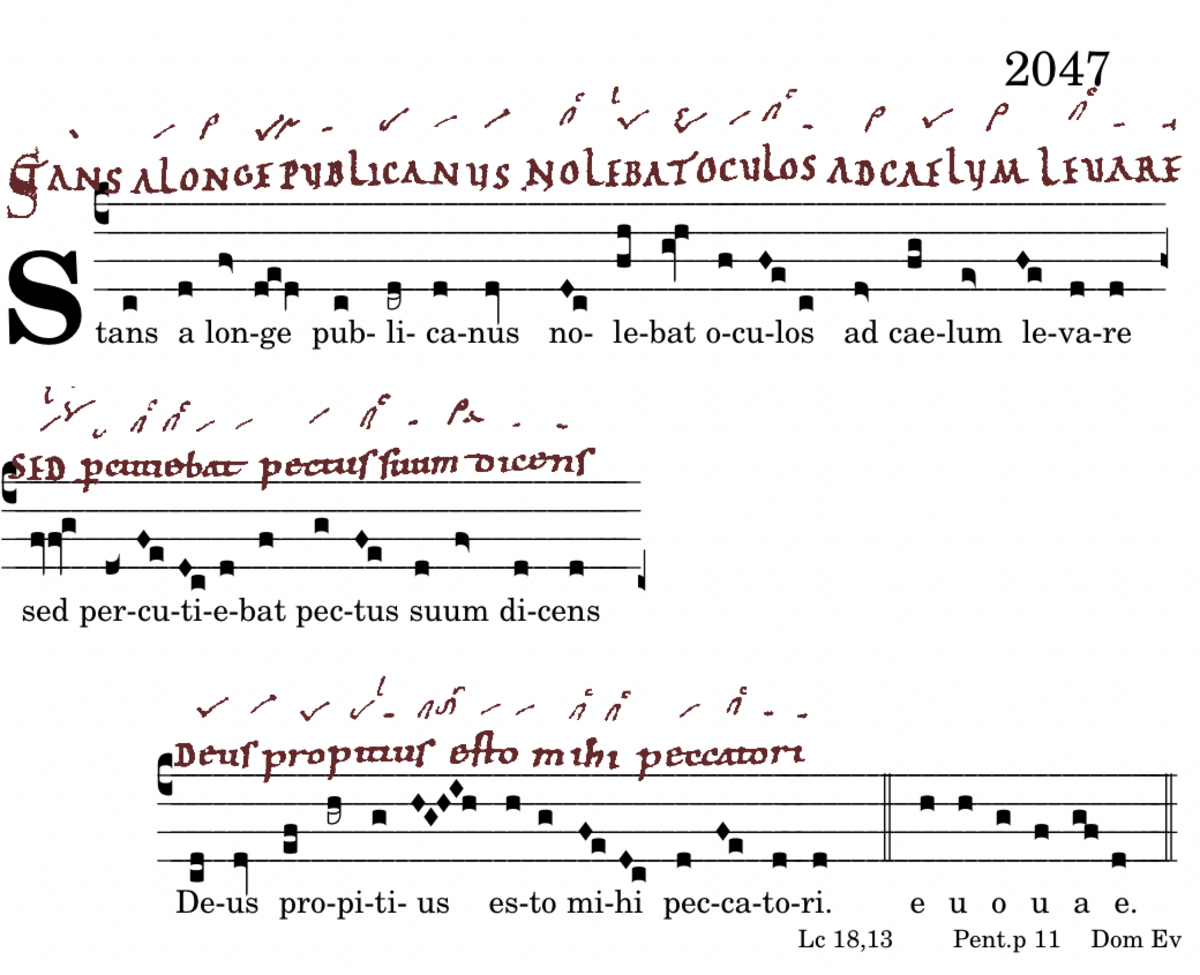🔘 IN GR TR AL OF CO xxxxx ✅ 2️⃣ 0️⃣ 3️⃣ 4️⃣ 5️⃣ 6️⃣ 7️⃣ 8️⃣ xxxxx AN RP IV alia
2047 AN Stans a longe publicanusModus 1
Der Beginn ist ein Fleckerlteppich an Formeln, die punktgenau den Text ausdeuten:
INC asc (Gravis) „Stans a longe“ endet mit nkTrc: 'lange'
TrcFIN = ~Trc:Centoübergang.
INC ad1, weil er:
„publicanus“ Der Zöllner hebt sich nicht über die Finalis,
FML quia „nolébat“
„nolebat“ weil er es nicht wagt:
2INC cad ad „do“: colon
„oculos“ endet überhaupt am „do“.
1TER conc
nullum, bloß ein AkzentPes auf der Ebene „fa“.
1TER v.addassoziative Verkettung, „suum“ der Cephalicus verstärkt die Betonung „dícens“.
INC ad1
„propitius“ ist eine eigenartige Mischung aus Terminatio, Anfang, FML supra und FML quia.
FML quia „propitius“
1TER v.add
● Von ferne stand der Zöllner wollte nicht seine Augen zum Himmel heben
(seine Augen nicht aufschlagen)
sondern schlug an seine Brust und sagte:
Gott sei mir Sünder gnädig (nahe).
● From afar stood the publican would not lift up his eyes to heaven
(would not open his eyes)
But beat his breast, and said,
God be merciful (near) to me a sinner.
The beginning is a patchwork of formulas that precisely interpret the text:
INC asc (Gravis) „Stans a longe“ ends with nkTrc: 'long'
TrcFIN = ~Trc:Centoübergang.
INC ad1 because it:
„publicanus“ The publican does not rise above the finalis,
FML quia „nolébat“\
„nolebat“ because he dares not:
2INC cad ad „do“: colon
„oculos“ ends at all on „do“.
1TER conc
nullum, merely an accentPes on the level „fa“.
1TER v.addassociative concatenation, „suum/“ the cephalicus reinforces the accent „dícens“.
INC ad1
„propitius“ is a strange mixture of terminatio, beginning, FML supra and FML quia.
FML quia „propitius“
1TER v.add

